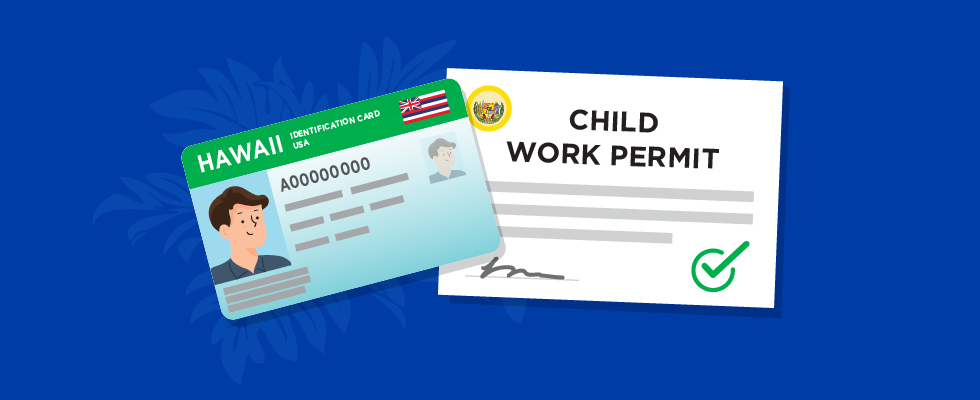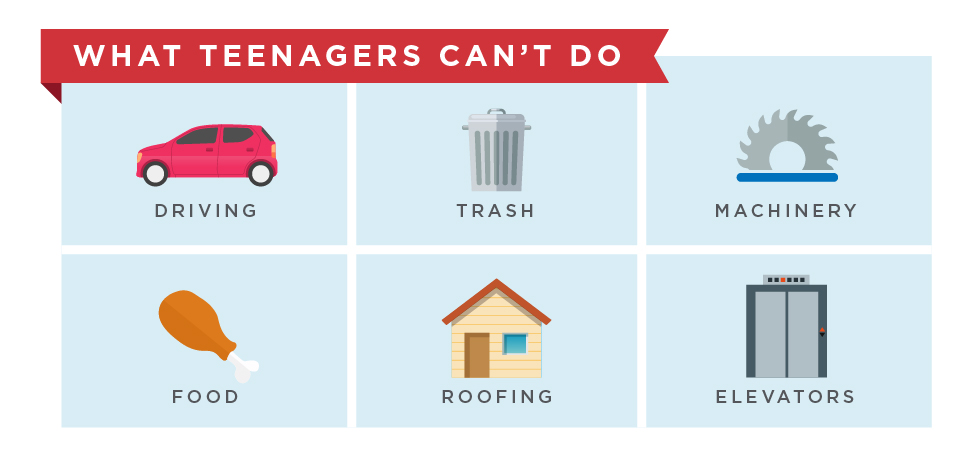
Hiring youth can help Hawaiʻi businesses thrive during busy seasons and fill labor gaps any time of year. In return, the teenagers receive work experience on their resume and some pocket cash. But hiring minors comes with some added responsibility, so simplicityHR by ALTRES put together this guide that covers fundamental requirements and gives a few examples of what teenage workers can and can’t do.
Understanding labor laws
Child employment is regulated by both federal and Hawaii state laws. When the laws overlap, employers are required to follow the one that provides more protection. It’s also essential to know that the regulations vary significantly depending on the youth’s age. Children under 14 are generally prohibited from working in non-agriculture operations, with some exceptions. Fourteen- and 15-year-olds are subject to limited types of work and limited working hours. Teens ages 16 and 17 can generally work any number of hours in any job unless it’s considered hazardous, which we’ll touch on later. Once someone turns 18, they’re no longer subject to child labor laws.
For the most part, this guide covers non-agriculture occupations. And for those parents reading who are worried they’re going to lose free labor (just kidding), rest easy. Kids of any age are permitted to work for a business entirely owned by their parents provided it doesn’t involve handling explosives… or other work that’s declared hazardous.
This might all seem arduous and overwhelming but read on because employers are the ones responsible for ensuring their employees are provided with safe working conditions. If young workers are found to be carrying out tasks considered hazardous or working beyond the allowed hours, civil penalties can be levied against the business. A 2019 crackdown on malls in Hawaii resulted in $59,000 in fines against numerous employers where youth were carrying out duties that might not seem dangerous at first glance, such as loading a trash compactor.
This guide, of course, doesn’t constitute legal advice. But it will provide general information on:
- Child work permits
- Youth workers under 14
- Times of day youth are allowed to work
- Examples of some tasks teenagers are allowed to do
- Examples of job duties teenagers are legally banned from performing
Obtaining a Hawaiʻi child work permit
Hawaiʻi law requires anyone under 18 to have a child labor certificate, or work permit, before their first day on the job. This is a way for the state to ensure the work isn’t hazardous and won’t interfere with a teenager’s schooling.
16- and 17-year-oldsʻ
Sixteen and 17-year-olds can obtain a Certificate of Age (COA) via an online application. Once the state grants a certificate, the worker can keep that same one and use it at any job until they turn 18. Employers in Hawaiʻi hiring a 16- or 17-year-old need to see the COA and a valid document proving the minor’s age before the youth is allowed to start working (along with Form I-9 requirements). The employer needs to record the number of the COA then return the original copy and the proof of age document to the teenager.
Valid proof of age documents for 16- and 17-year-olds include:
- State ID
- Military ID
- Driver’s license
- Immigration record
- Court record
- Birth certificate
14- and 15-year-olds
Hawaii requires a more stringent process before issuing a work permit for 14- and 15-year-old workers, so employers should plan for a longer hiring process for youth in that age bracket. Unlike the certificate of age, work permits for 14- and 15-year-olds are not transferrable between jobs. An employer must apply for a new work permit every time they hire a worker who is 14 or 15.
Work permit applications are available on the Hawaiʻi Wage Standards Division’s website. The form must be signed by both the employer and a parent or guardian of the minor. The application then has to be mailed or brought into a DLIR Child Labor Office along with an acceptable proof of age document. Once the hours and work are approved, a temporary authorization will be issued while the work permit is mailed to the employer. The teenager can begin working with the temporary authorization while waiting on the permit to arrive.
Hiring youth under 14 in Hawaiʻi
Federal law generally prohibits hiring children under 14 for jobs outside of agriculture, but there are several exceptions including delivering newspapers and babysitting on a casual basis. Children under 14 can also work in radio, music, modeling, television, motion pictures, and other types of theatrical employment. There are still safeguards in place, including that a parent or guardian submits written consent of the employment to the DLIR director. Theatrical employers must keep a certificate of employment for the child on file and, if the work takes place while school is in session, submit a signed statement from a school official that the child’s attendance and schoolwork is satisfactory.
Notably, Hawaiʻi allows children as young as 10 to harvest coffee. The child must be accompanied by a parent and isn’t allowed to carry more than 15 pounds. There are also strict rules on working hours for the children, including that they can’t work more than two consecutive hours without a 15-minute break and more than four consecutive hours without a one-hour meal break.
Hours youth are allowed to work
There are no time restrictions for 16- and 17-year-old workers as long as the job doesn’t interfere with school.
When hiring 14- and 15-year-olds, Hawaiʻi state law and federal law places parameters on the times of day and total hours youth can work. They can work:
- Only outside school hours
- No more than three hours on a school day, including Fridays
- On non-school days, no more than eight hours
- No more than 18 hours during a week school is in session
- No more than 40 hours during a week school is not in session
- Between 7 a.m. and 7 p.m., except between June 1 and Labor Day, when the evening hour is extended to 9 p.m.
- No more than six consecutive days
- No more than five consecutive hours without at least a 30-minute rest or meal period
What teenagers are allowed to do at work
It’s probably starting to feel like there are so many rules it prohibits teenagers from doing any work, which would probably make them happy. The good news for employers is that there are plenty of tasks teens are allowed to perform.
Minors who are 16 and 17 can work for any number of hours in any occupation as long as it’s not considered “hazardous” under federal or state laws. For more on what constitutes a hazardous job, see the next section.
Fourteen- and 15-year-olds can
- Work in most office, retail, and food service establishments
- Work in baseball parks, movie theaters, and gasoline service stations
- Bag groceries, do office work, stock shelves, and cashier
- Do limited kitchen work preparing food and beverages
- Perform limited cooking duties on gas or electric grills, as long as there’s no open flame
- Use a deep fryer if the basket of food can be automatically lowered into the grease
- Clean cooking equipment and surfaces
What teenagers can’t do at work
There’s a long list of jobs youth can’t do because the work is considered hazardous under federal law. Find more details on those occupations on the U.S. Department of Labor website. Below are a few tasks that might seem commonplace but are prohibited.
Driving
Employees younger than 17 can’t drive on public roads while working. Seventeen-year-olds can, but only under certain circumstances.
- Driving must be during daylight hours
- Employee can’t have any moving violations at the time of hire
- Vehicle can’t weigh more than 6,000 pounds
- A 17-year-old can’t spend more than one-third of a workday or more than 20 percent of a work week driving.
The driving cannot involve:
- Towing
- Operating anything other than an automobile or truck, including a golf cart or ATV
- Urgent or time-sensitive deliveries
- Transporting more than three passengers
- Traveling beyond a 30-mile radius of the place of employment
- More than two trips a day to deliver to a customer
Trash
Teen workers under 18 are allowed to take trash out and leave it on the ground by a compactor, but they cannot load, operate, or unload a compactor. That includes pushing the “on” button. Allowing a minor to do so could result in a fine of more than $13,000 per youth doing the work.
Allowing minors to use a trash compactor was one thing the mall retailers in Hawaiʻi were penalized for in 2019.
Machinery
Minors are prohibited by law from operating or cleaning power-driven meat and poultry processing machines. That includes using a meat slicer at a deli. It also includes patty forming machines and commercial mixers.
Fourteen- and 15-year-olds can’t operate power-driven lawn mowers or cutters.
Food
Fourteen- and 15-year-olds can’t work in freezers or meat coolers. They are, however, allowed to temporarily enter one to retrieve an item.
Fourteen- and 15-year-olds can’t perform any baking. They also can’t use pressure cookers, rotisseries, high-speed ovens, or rapid toasters.
Roofing
Minors can’t work installing roofs or perform work on or about a roof. That includes installing satellite dishes, venting units, and gutters. Under-18 employees can’t even use a roof to access other job duties.
Elevators
Excluding a typical passenger elevator that is entirely automated except for the press of a button, teenagers can’t operate elevators at work. Hawaiʻi law states teens can’t ride in a freight elevator, unless it’s being run by an assigned operator.
Partnering with simplicityHR by ALTRES
If all this seems overwhelming and you still have questions about hiring youth in Hawaiʻi, don’t worry. The staff at simplicityHR by ALTRES are here to help Hawaiʻi businesses with every aspect of human resources.
SimplicityHR by ALTRES will work with you to ensure that hiring a minor is as simple as possible. A 16- or 17-year-old who applies for a Certificate of Age from the State will usually receive a reply by email within 24 to 48 hours. But a work permit for 14- and 15-year-olds can take longer and may depend on any backlog at the State level. As needed, simplicityHR by ALTRES can follow up with the appropriate agency to assist in getting work permits processed in a timely manner.
Have youth on the job and worried something mundane will result in a hefty fine if there’s a surprise visit from a Hawaiʻi Occupational Health and Safety inspector? SimplicityHR by ALTRES offers risk assessment visits. Employers can request someone from simplicityHR by ALTRES to visit their location and conduct a mock inspection. We’ll provide you with recommendations, and you can make the necessary adjustments in order to rest easy knowing your operation is in line with the highest standards.
Plus, these rules change. Once again, simplicityHR by ALTRES is on the case. Our staff monitors federal and state updates to the law and notifies affected employers with the necessary information to keep their businesses compliant. So, if you would rather pass on these details to trusted professionals, contact simplicityHR by ALTRES.
Sign up for our newsletter
Sign up for our monthly HIVE newsletter and get tips for finding a job, managing a business and advancing your career right in your inbox.

Hiring youth can help Hawaiʻi businesses thrive during busy seasons and fill labor gaps any time of year. In return, the teenagers receive work experience on their resume and some pocket cash. But hiring minors comes with some added responsibility, so simplicityHR by ALTRES put together this guide that covers fundamental requirements and gives a few examples of what teenage workers can and can’t do.
Understanding labor laws
Child employment is regulated by both federal and Hawaii state laws. When the laws overlap, employers are required to follow the one that provides more protection. It’s also essential to know that the regulations vary significantly depending on the youth’s age. Children under 14 are generally prohibited from working in non-agriculture operations, with some exceptions. Fourteen- and 15-year-olds are subject to limited types of work and limited working hours. Teens ages 16 and 17 can generally work any number of hours in any job unless it’s considered hazardous, which we’ll touch on later. Once someone turns 18, they’re no longer subject to child labor laws.
For the most part, this guide covers non-agriculture occupations. And for those parents reading who are worried they’re going to lose free labor (just kidding), rest easy. Kids of any age are permitted to work for a business entirely owned by their parents provided it doesn’t involve handling explosives… or other work that’s declared hazardous.
This might all seem arduous and overwhelming but read on because employers are the ones responsible for ensuring their employees are provided with safe working conditions. If young workers are found to be carrying out tasks considered hazardous or working beyond the allowed hours, civil penalties can be levied against the business. A 2019 crackdown on malls in Hawaii resulted in $59,000 in fines against numerous employers where youth were carrying out duties that might not seem dangerous at first glance, such as loading a trash compactor.
This guide, of course, doesn’t constitute legal advice. But it will provide general information on:
- Child work permits
- Youth workers under 14
- Times of day youth are allowed to work
- Examples of some tasks teenagers are allowed to do
- Examples of job duties teenagers are legally banned from performing
Obtaining a Hawaiʻi child work permit
Hawaiʻi law requires anyone under 18 to have a child labor certificate, or work permit, before their first day on the job. This is a way for the state to ensure the work isn’t hazardous and won’t interfere with a teenager’s schooling.
16- and 17-year-oldsʻ
Sixteen and 17-year-olds can obtain a Certificate of Age (COA) via an online application. Once the state grants a certificate, the worker can keep that same one and use it at any job until they turn 18. Employers in Hawaiʻi hiring a 16- or 17-year-old need to see the COA and a valid document proving the minor’s age before the youth is allowed to start working (along with Form I-9 requirements). The employer needs to record the number of the COA then return the original copy and the proof of age document to the teenager.
Valid proof of age documents for 16- and 17-year-olds include:
- State ID
- Military ID
- Driver’s license
- Immigration record
- Court record
- Birth certificate
14- and 15-year-olds
Hawaii requires a more stringent process before issuing a work permit for 14- and 15-year-old workers, so employers should plan for a longer hiring process for youth in that age bracket. Unlike the certificate of age, work permits for 14- and 15-year-olds are not transferrable between jobs. An employer must apply for a new work permit every time they hire a worker who is 14 or 15.
Work permit applications are available on the Hawaiʻi Wage Standards Division’s website. The form must be signed by both the employer and a parent or guardian of the minor. The application then has to be mailed or brought into a DLIR Child Labor Office along with an acceptable proof of age document. Once the hours and work are approved, a temporary authorization will be issued while the work permit is mailed to the employer. The teenager can begin working with the temporary authorization while waiting on the permit to arrive.
Hiring youth under 14 in Hawaiʻi
Federal law generally prohibits hiring children under 14 for jobs outside of agriculture, but there are several exceptions including delivering newspapers and babysitting on a casual basis. Children under 14 can also work in radio, music, modeling, television, motion pictures, and other types of theatrical employment. There are still safeguards in place, including that a parent or guardian submits written consent of the employment to the DLIR director. Theatrical employers must keep a certificate of employment for the child on file and, if the work takes place while school is in session, submit a signed statement from a school official that the child’s attendance and schoolwork is satisfactory.
Notably, Hawaiʻi allows children as young as 10 to harvest coffee. The child must be accompanied by a parent and isn’t allowed to carry more than 15 pounds. There are also strict rules on working hours for the children, including that they can’t work more than two consecutive hours without a 15-minute break and more than four consecutive hours without a one-hour meal break.
Hours youth are allowed to work
There are no time restrictions for 16- and 17-year-old workers as long as the job doesn’t interfere with school.
When hiring 14- and 15-year-olds, Hawaiʻi state law and federal law places parameters on the times of day and total hours youth can work. They can work:
- Only outside school hours
- No more than three hours on a school day, including Fridays
- On non-school days, no more than eight hours
- No more than 18 hours during a week school is in session
- No more than 40 hours during a week school is not in session
- Between 7 a.m. and 7 p.m., except between June 1 and Labor Day, when the evening hour is extended to 9 p.m.
- No more than six consecutive days
- No more than five consecutive hours without at least a 30-minute rest or meal period
What teenagers are allowed to do at work
It’s probably starting to feel like there are so many rules it prohibits teenagers from doing any work, which would probably make them happy. The good news for employers is that there are plenty of tasks teens are allowed to perform.
Minors who are 16 and 17 can work for any number of hours in any occupation as long as it’s not considered “hazardous” under federal or state laws. For more on what constitutes a hazardous job, see the next section.
Fourteen- and 15-year-olds can
- Work in most office, retail, and food service establishments
- Work in baseball parks, movie theaters, and gasoline service stations
- Bag groceries, do office work, stock shelves, and cashier
- Do limited kitchen work preparing food and beverages
- Perform limited cooking duties on gas or electric grills, as long as there’s no open flame
- Use a deep fryer if the basket of food can be automatically lowered into the grease
- Clean cooking equipment and surfaces
What teenagers can’t do at work
There’s a long list of jobs youth can’t do because the work is considered hazardous under federal law. Find more details on those occupations on the U.S. Department of Labor website. Below are a few tasks that might seem commonplace but are prohibited.
Driving
Employees younger than 17 can’t drive on public roads while working. Seventeen-year-olds can, but only under certain circumstances.
- Driving must be during daylight hours
- Employee can’t have any moving violations at the time of hire
- Vehicle can’t weigh more than 6,000 pounds
- A 17-year-old can’t spend more than one-third of a workday or more than 20 percent of a work week driving.
The driving cannot involve:
- Towing
- Operating anything other than an automobile or truck, including a golf cart or ATV
- Urgent or time-sensitive deliveries
- Transporting more than three passengers
- Traveling beyond a 30-mile radius of the place of employment
- More than two trips a day to deliver to a customer
Trash
Teen workers under 18 are allowed to take trash out and leave it on the ground by a compactor, but they cannot load, operate, or unload a compactor. That includes pushing the “on” button. Allowing a minor to do so could result in a fine of more than $13,000 per youth doing the work.
Allowing minors to use a trash compactor was one thing the mall retailers in Hawaiʻi were penalized for in 2019.
Machinery
Minors are prohibited by law from operating or cleaning power-driven meat and poultry processing machines. That includes using a meat slicer at a deli. It also includes patty forming machines and commercial mixers.
Fourteen- and 15-year-olds can’t operate power-driven lawn mowers or cutters.
Food
Fourteen- and 15-year-olds can’t work in freezers or meat coolers. They are, however, allowed to temporarily enter one to retrieve an item.
Fourteen- and 15-year-olds can’t perform any baking. They also can’t use pressure cookers, rotisseries, high-speed ovens, or rapid toasters.
Roofing
Minors can’t work installing roofs or perform work on or about a roof. That includes installing satellite dishes, venting units, and gutters. Under-18 employees can’t even use a roof to access other job duties.
Elevators
Excluding a typical passenger elevator that is entirely automated except for the press of a button, teenagers can’t operate elevators at work. Hawaiʻi law states teens can’t ride in a freight elevator, unless it’s being run by an assigned operator.
Partnering with simplicityHR by ALTRES
If all this seems overwhelming and you still have questions about hiring youth in Hawaiʻi, don’t worry. The staff at simplicityHR by ALTRES are here to help Hawaiʻi businesses with every aspect of human resources.
SimplicityHR by ALTRES will work with you to ensure that hiring a minor is as simple as possible. A 16- or 17-year-old who applies for a Certificate of Age from the State will usually receive a reply by email within 24 to 48 hours. But a work permit for 14- and 15-year-olds can take longer and may depend on any backlog at the State level. As needed, simplicityHR by ALTRES can follow up with the appropriate agency to assist in getting work permits processed in a timely manner.
Have youth on the job and worried something mundane will result in a hefty fine if there’s a surprise visit from a Hawaiʻi Occupational Health and Safety inspector? SimplicityHR by ALTRES offers risk assessment visits. Employers can request someone from simplicityHR by ALTRES to visit their location and conduct a mock inspection. We’ll provide you with recommendations, and you can make the necessary adjustments in order to rest easy knowing your operation is in line with the highest standards.
Plus, these rules change. Once again, simplicityHR by ALTRES is on the case. Our staff monitors federal and state updates to the law and notifies affected employers with the necessary information to keep their businesses compliant. So, if you would rather pass on these details to trusted professionals, contact simplicityHR by ALTRES.
Sign up for our newsletter
Sign up for our monthly HIVE newsletter and get tips for finding a job, managing a business and advancing your career right in your inbox.



